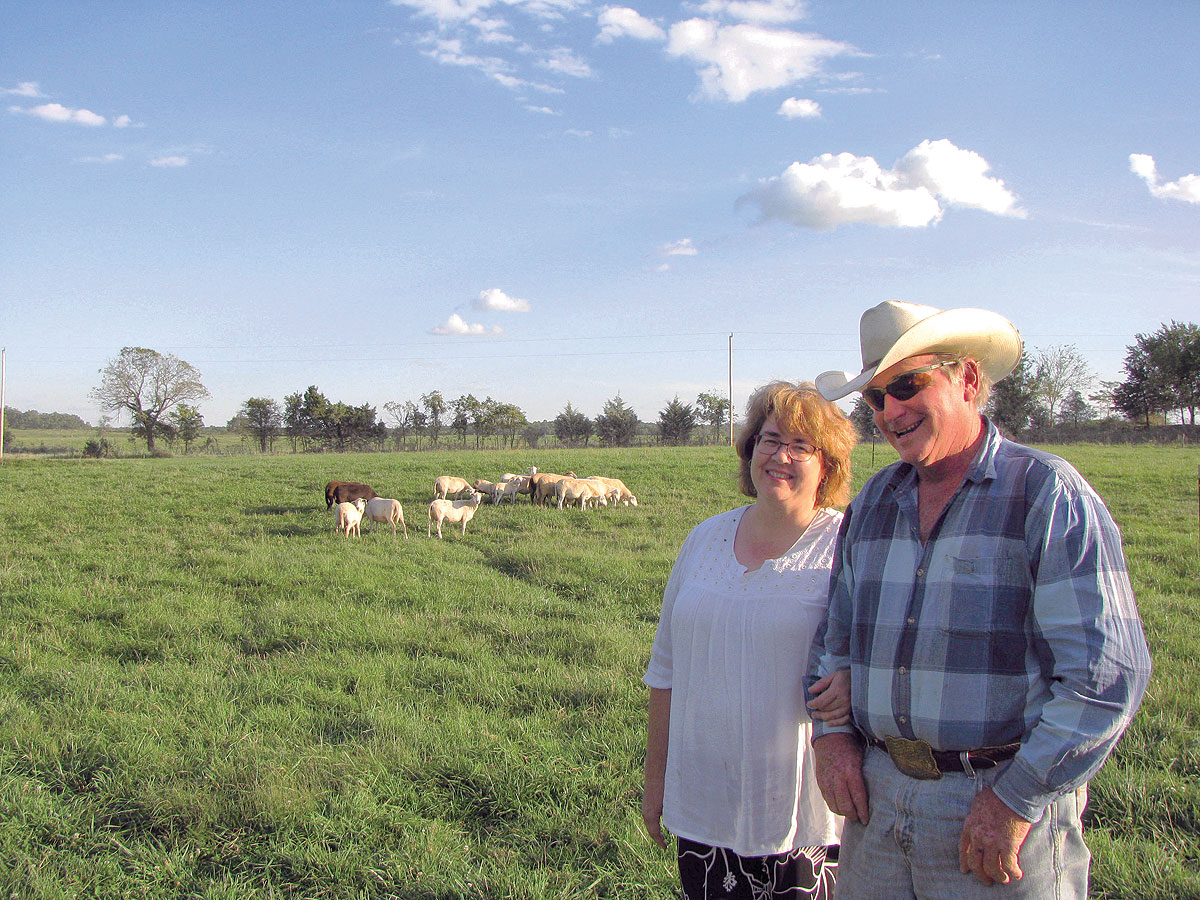
The fields at Troup Land and Livestock are picture perfect with green, lush grass swaying in the breeze with few weeds hindering its movement. But this property was far from this healthy state when Marcus and Amanda Troup purchased it a couple of years ago.
“We really rehabilitated this farm. It had been a continuous graze farm. It had been grazed down to what looked like an abandoned golf course,” explained Marcus Troup. Though the Troups invested their share of labor into these fertile fields, Marcus and Amanda give their animals credit for the transformation. Troup Land and Livestock uses an intensive rotational grazing program, coupled with a polyculture approach to farming to produce their desired results.
Before the Troups made any changes to their 25-acre farm in Fair Grove, Mo., they read, researched and studied how to successfully run an organic-based farm.
“I bet I read 2,000 pages before I ever did anything,” said Marcus.
“There is a lot of science to it,” added Amanda Troup.
The two spent much of their spare time learning everything they could about sustainable agriculture. One of the first books they read was “You Can Farm” by Joel Salatin. They also participated in a grazing school offered by the Natural Resource Conservation Service. In addition, Marcus brought to the table knowledge he gained working for a 100-percent grass-fed dairy farm near Monett, Mo.
“I was very much a part of the grass-fed movement,” commented Marcus.
The Troups started with beef cattle, but soon added other animals to their farm, operated by organic-based sustainable practices.
“We always knew we wanted to do the polyculture,” explained Amanda.
The Troups raise beef cattle, sheep, chickens and pigs using a rotational grazing system. The Troups raise all their poultry and eggs on pasture. Their chickens thrive on a diet of grasses and non-GMO, antibiotic free and organically-sourced grain.
The beef and sheep are grass-fed and finished. The Troups do not feed their cattle or sheep grain of any kind at anytime, nor does the livestock receive medications, hormones or growth stimulants. The Troups rely on their natural practices to keep their livestock healthy.
“A big part of the cattle program is their mineral,” explained Marcus.
The Troups allow their livestock to have a free choice of salt, sea kelp, selenium, vitamins and compounds. Marcus and Amanda also give their livestock food grade Diatomaceous earth to fight off parasites. They use a small amount of Shaklee Basic H organic cleaning solution in their water tanks as an organic dewormer. But above all else, the Troups discovered owning a variety of livestock aids in the overall health of their animals and farm. For example, their chickens serve as a pest removal service because they scratch the manure piles looking for something to eat. “They (the chickens) spread the manure to a point that flies won’t lay eggs in the disturbed cow patties,” said Marcus.
Troup Land and Livestock finds multiple benefits from raising different species of animals together. “If you manage their actions and environment then you get to reap the benefits,” said Amanda.
The Troups allow their Angus-based herd of cattle and Katahdin sheep to graze side-by-side in the same pasture.
“We found with our sheep that they don’t compete for the same type or height of grass. They act like weed patrol,” explained Marcus. When an area of the farm needs some extra care, the Troups use their heirloom Hampshire pigs to prepare the soil for seed. “Pigs will aerate the soil. I can put them in an area that is not doing so well. They will completely turn over a piece of ground,” explained Marcus.
“It’s all about allowing the animals to naturally do the work that they are supposed to do,” added Amanda.
Marcus and Amanda both have demanding careers off the farm. Marcus owns and operates his own insurance office and Amanda works as a pharmacist. The two spent countless evenings and weekends setting up their farm to serve as a rotational grazing operation.
Through research, hard work and trial and error, the Troups have reached a point where their farm is running smoothly. They are sold out of beef a year in advance, they sell 150 dozen eggs a week, and have customers from as far as St. Louis and Kansas City buying their products.
“We did this for our family. Over time we got more knowledgeable about what we are doing and it turned into a business for us,” said Marcus.
Troup Land and Livestock is sold on their way of farming. “In my opinion a lot of people would look at it and say, ‘It is too labor intensive,’ and I would say, ‘Just try it.’ If they only did it one time, everyone would do it,” concluded Marcus.







